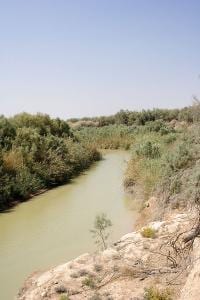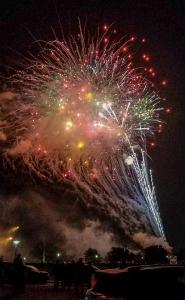 I need not add to the assaults against poor 2020 that have been leveled by nearly everyone; it has been a grim year indeed with pandemic and racial reckoning and a strangely-haired president who just cannot find reality long enough to recognize and accept defeat. Fortunately, we are on the cusp of 2021, a year most of us imagine will be significantly more hopeful, given vaccines in arms and a rational team in the White House. I sense that 2021 will be a year to begin again that yearly search for equity in our fractured society, freedom to move about the country once again, and finally, and not a moment too soon, a serious engagement with our many issues: climate change, racism, rebuilding our collapsing infrastructure, reshaping the shattered economy in ways to include those millions traditionally and painfully excluded from its benefits. Tall orders all, but new beginnings announce all of these and more. No more talk of Mexican- supported border walls (absurd!), coddling of dictators (dangerous!), flaunting of science and reason, please! Let us move forward to tackle truly important and pressing issues that affect the entire planet.
I need not add to the assaults against poor 2020 that have been leveled by nearly everyone; it has been a grim year indeed with pandemic and racial reckoning and a strangely-haired president who just cannot find reality long enough to recognize and accept defeat. Fortunately, we are on the cusp of 2021, a year most of us imagine will be significantly more hopeful, given vaccines in arms and a rational team in the White House. I sense that 2021 will be a year to begin again that yearly search for equity in our fractured society, freedom to move about the country once again, and finally, and not a moment too soon, a serious engagement with our many issues: climate change, racism, rebuilding our collapsing infrastructure, reshaping the shattered economy in ways to include those millions traditionally and painfully excluded from its benefits. Tall orders all, but new beginnings announce all of these and more. No more talk of Mexican- supported border walls (absurd!), coddling of dictators (dangerous!), flaunting of science and reason, please! Let us move forward to tackle truly important and pressing issues that affect the entire planet.
As always, when I consider problems that present themselves to me, my mind heads off to the Bible. For many of my fellow US Americans, that is hardly the first place they go when they think of crucial issues for their lives, but for me the ancient biblical text has long been the surprising locus of fresh insights and new ways of thinking, even concerning the most contemporary of questions. I am far from a fundamentalist, or even very conservative, when I read the Bible, as any who have read me in the past will surely see. Yet, the Bible remains for me an anchor for my reflection on the difficulties or disputes that continually rear up in my life. As I think about this new year upcoming and its myriad challenges, I think first of the people of Israel as they left Egypt, as they wandered in the wilderness of Sinai, and as they were poised on the banks of the Jordan River, preparing to enter the land that YHWH had promised.
The book of Deuteronomy is structured as a series of sermons offered by Moses to the people, warning them and helping them imagine themselves as the people of YHWH facing new and potentially terrifying situations in a place they knew very little about. Just listen to the way the lawgiver speaks to them about this new land and how it differs from what they know in crucial ways. “For the land you are about to enter to occupy is not like the land of Egypt, from which you have come, where you sow your seed and irrigate by foot like a vegetable garden. The land you are crossing over to occupy is a land of hills and valleys, watered by rain from the sky, a land that YHWH your God looks after. The eyes of YHWH your God are always on it, from the beginning to the end of the year” (Deut.11:10-12). It has long been known in the ancient world that Egypt was “the gift of Nile,” meaning that all agriculture was based on irrigation from that central and rarely failing river. Great channels were cut into the land from the Nile, leading to the fertile fields of vegetables and fruits. It rarely rains in Egypt, but the Nile assures the people of water year round.
Not so in Israel. There is some more rain there than in Egypt, but the Jordan River is hardly the Nile, source of water for the land. To live in Israel’s hills and valleys, one had to rely on rain from the sky, rain that was sporadic, not certain, not always enough. In this new place, reliance on YHWH’s gifts is crucial if the people are to survive. Hence, the author of Deuteronomy reiterates the central demand of that survival: “If you will only heed God’s every commandment that I am commanding you today—loving YHWH your God, and serving God with all your heart (that is, your mind and will) and with all your life—then I will give the rain for your land in its season, the early rain and the later rain, and you will gather in your grain, your wine, and your oil…” (Deut.11:13-14). Do not be fooled by this seeming tit-for-tat gift for proper obedience; if you obey, you will get rain. The Israelites knew all too well that there was no automatic rainy reply to their strict obedience to their God. Too often, their fervent prayers and heartfelt sacrifices were met with silence and drought. But unlike Egypt’s constant gift of the waters of the Nile, Israel offered only the unpredictable and often insufficient rains from the skies. They simply had to turn to YHWH, and to YHWH’s commands and ordinances, if they were to hope for survival in this often harsh land that YHWH had given to them.
Why then did they bother to attempt to follow God’s commands if the result of their following was never assured? It is that they soon discovered that the call of YHWH to live in community, to care for all members of the community, to open their hearts and lives to that community, as well as to those who came continually to join them in that community, proved to be the way they could thrive as a people, could withstand together the difficult challenges that the new land threw up to them. Deuteronomy is a rich summation of communal ethics that made possible the ongoing life of Israel, a series of statutes and commandments that could be learned and passed down through the generations, binding the community together. When first the people entered the new land, this Torah, the laws and stories that glued them together, was repeated and shared among them, from age to age. And it was this Torah that sustained them even when at the apparent end of their nation, as they were carted off to Babylonian exile, in the 6thcentury BCE, it looked like the people of Israel would disappear, would dissolve into the sands of history. Yet, even there in the pagan Babylon, they survived anew, no longer as national Israelites, but as Jews, thinking and writing and thriving in Babylon, living out the promise of Torah once again.
And so today in 2021, the community of Judaism, as diverse and different as it is among its many factions and sects, still maintains a reliance on Torah, those laws and stories that sustained the people of Israel as the entered that new land some 3000 years ago. I find this grand story little less than astonishing. The company of Judaism still survives and thrives, based as it is, albeit understood in radically different ways, on Torah, read and pondered through the millennia, still acting as cement that holds them together. As we begin again in 2021 in a new and challenging US America, we too face a terrifying newness, a frightening place of potential pitfalls, of hills and valleys of snares and shocks, I suggest we return to that God who has called and nurtured us, who offers the gift of Torah, the demand to love God with all of who we are and to love all of our neighbors as fully and completely as we try to love ourselves. That means to seek unity in community, to attempt to help rather than confront, to aid rather than deride our fellow citizens. 2021 can become a year of hope and possibility. May God lead us to a full measure of both.
(Images from Wikimedia Commons)












